The Great Yokai War– 2005, Takashi Miike, Japan
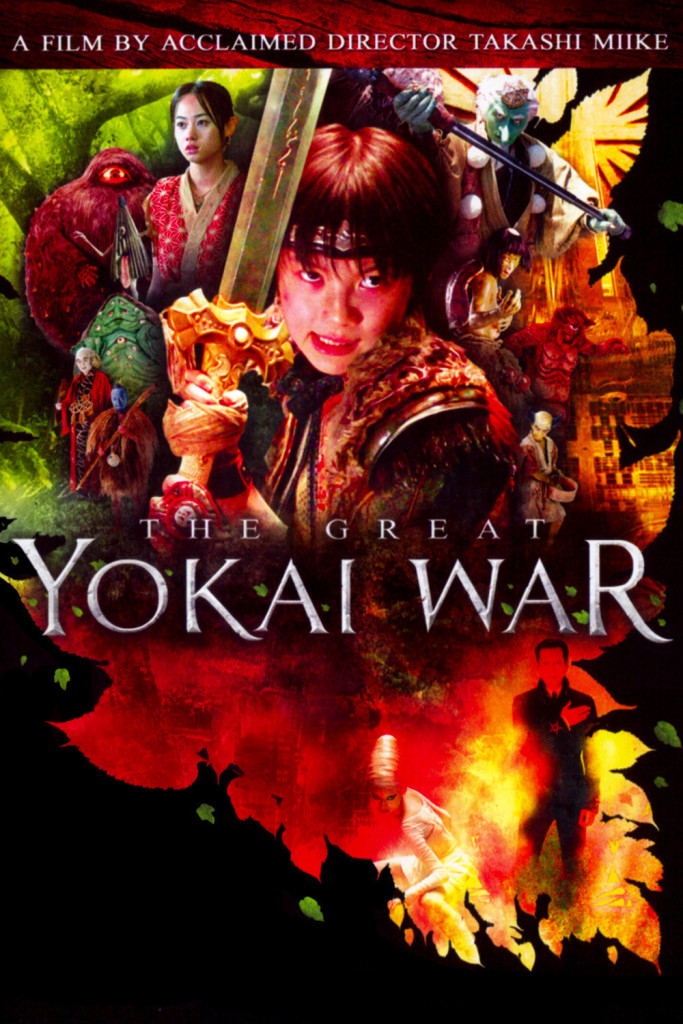
And so it came to this…
In 2005, Daiei’s phenomenal Yokai franchise from the 1960’s enjoyed a brief, regrettable resurgence when famed director Takashi Miike decided to bless the Earth with The Great Yokai War. This unfortunate semi-sequel really only checks off on about half of the things that SHOULD be on the checklist for any Yokai film, and instead injects it with more Miike-isms than were desirable, or appropriate. I’m pretty hot and cold on Miike as a director to begin with, but in the case of The Great Yokai War, I’m straight up irritated.
Worth mentioning; this shit is a kid’s movie, but Miike isn’t the sort of bro you let babysit. The Great Yokai War is way, way scarier than your average children’s film, and periodically, it’s more sexually suggestive, as well. For the adults in the audience, I guess this is SORT OF a win, but it doesn’t really go far enough with the spooks or the sex to satisfy the shameful smut-hounds inside all of us, and I’m damn sure not going to let my kids watch this thing; so in the end we have a movie which lingers pointlessly between two polar opposite demographics. Honestly, that’s Miike to a T.
THE PLOT~ When an evil, ancient sorcerer type dude who dresses really nice decides that he wants revenge against both humans, AND the yokai, he does some stupid bullshit that’s super uninteresting and lame. Then, later on, some little kid finds himself wrapped up in a grand, cookie-cutter fantasy adventure, which forces him to battle alongside the Yokai and save the world. Holy shit, man it’s JUST that boring and generic.
UGH.
So… What, if anything, is GOOD in The Great Yokai War…?
Well, it’s does have a ton of monsters in it, which is definitely a non-negotiable requirement for this franchise. Not providing this most bare-bones of requirements would be nothing less than inexcusable, and while Miike is ordinarily quick to disappoint/and/or blatantly defy expectations, I am happy to report that in this case, he does indeed bring the thunder, monster style. Thank heavens.
The monsters also LOOK pretty darn good… Well, the Yokai do, at least. They’re mostly live action, and that’s a straight up blessing. The film also has “bad-guy” monsters in it, which are all CG… They fucking suck so bad, but we’ll cover them in greater detail later.
The Great Yokai War also succeeds pretty admirably at replicating the fun vibe seen in Spook Warfare, we get a real feel of urgency, and the human and yokai worlds are intermixed in a way that feels very similar to what the earlier Daiei films did so well. I’d say Miike passes with flying colors in this arena (imagine that!). He also nails the characterization of most of the central cast (with the exception of the bad guys- again, more to come on this), who feel like real, fully developed personalities, full of flaws and peculiar traits which make them feel relatable. Some of the jokes are even funny, the Yokai are all pokey and selfish, unmotivated to do anything even when oblivion is starring them in the face, and the only way to successfully get them to march off to battle is by misleading them into thinking they’ve been invited to a party. It’s weird, but I almost want to throw Miike a thumbs up in regards to how well this is done… But then I remember Ichi The Killer, and I get pissed off again.
Possibly the best thing the movie does, though, is that it actually has a fairly intelectual thesis statement, which is most unexpected in a shabby-ass kid’s fantasy adventure film. At the heart of it, The Great Yokai War is all about the transition from youth to adulthood, the moment when abandon our naïve, youthful perspective, and instead adopt of a more complex understanding of morality, and our roles in society. This is illustrated adequately in the personal journey of our central character, some Japanese Kid, and also mirrored more casually in the journey society has undertaken as it slowly forgets about the traditions of yesteryear, and becomes more preoccupied with the Internet and getting to work on time. As much as this movie full-on pisses me off, The Great Yokai War is ABOUT something, and credit where credit is due, that’s worth pointing out in any fair critique.
Not that that’s out of the way…
What DOESN’T work….?
The first (and worst) mistake Miike makes is that he takes the film out of the period setting seen in the old Daiei movies, and plops it down shittily into modern times. Damn, that sucks. This change allows Miike to flood our screen with his desired bad guys, who, again, are exempt from every single compliment I’ve paid to this film thus far, and it also sets up the comparison between the evolution of Japanese culture, and the journey to adulthood seen in our central character (some Japanese Kid), but it sucks like nobody’s business and isn’t worth it. It’s lame, lame as hell, this film would immediately jump up a full letter grade AT LEAST if it were set in Japan’s feudal era. It’s just so much more interesting.
Second inexcusable flaw: The CG. ALL of the CG in this film is fucking horrible. It’s just appaling, and really, this is a very common complaint for most any Japanese film in this day and age. It’s actually impossible to look at these characters and not feel a profound distatisfaction with how freaking shitty they all look. It would be enough to ruin the film, if there was even a decent film to ruin, and so I propose a new rule; If you can’t accocmplish your end goal with digital effects that are at least passable, then tough cookies, dude, change your goals. Do NOT launch a project that you can’t realistically pull off and then chuck the dog shit results out into the cinematic community, expecting a pardon. The CG in The Great Yokai War is a hole that would sink any boat; Miike, may God have mercy on your soul, you should have done anything other than this.
THIRD INEXCUSABLE FLAW: The Bad Guys. All of the bad guys in this movie are completely terrible. Firstly, the evil sorcerer dude: his plan is to capture all of the yokai, round them up, and toss them into this miasmic flame he’s got in a furnace (this is actually a yokai as well, oddly enough. It looks like slimy, pink fire.). After that, he tosses garbage in with them, and let’s it all mix together, thereby transforming the yokai into stupid looking steampunk robots that carry out his evil bidding. Re-read that, basically, this guy’s evil scheme is exactly the same thing Dr. Robotnik did back in the Sonic The Hedgehog video games, Sega Genesis era. To be clear, I think that shit was more believable when it was 16 Bit. Also, it had better graphics.
Shitty robots aside, the bad guys are also saddled with those familiar and all too unwelcome anime tropes, which have slowly wormed their way into Japanese live action cinema, and which really are just the worst things ever. His main henchman is easily the most aggravatingly lame character in the entire film, she’s some turncoat Yokai, played by the often obnoxious Chiaki Kuriyama. Sorry, Chiaki, if I hated you in Kill Bill, I’ll probably hate you forever.
If you were wondering who the second lamest character in the film is, it’s probably Sunekosuri, a little fury creature who forms a special friendship with our lead kid early on. Sunekosuri is basically just a B-squad Mogwai that pees a lot. It sucks.
FORTH INEXCUSABLE FLAW: HOLY SHIT, THIS MOVIE IS GENERIC: It doesn’t help that Miike took these neat little movies that were essentially brilliant live action interpetations of Japan’s rich folk lore, and then made a sequel which mashed them into the most generic fantasy storyline ever. The Great Yokai War really feels like it’s less concerned with exploring folklore, and more concerned with being the Japanese Neverending Story. Really, It’s more like The Neverending Story part 5. Probably. I never saw Part 5, but if it exists, I’m sure it sucks, just like The Great Yokai War does.
The last two things I have to say:
1) One of these yokai looks like what you’d get if Mickey Rourke got wasted in a Hawaiin Punch bottling plant and lept into one of the vats.
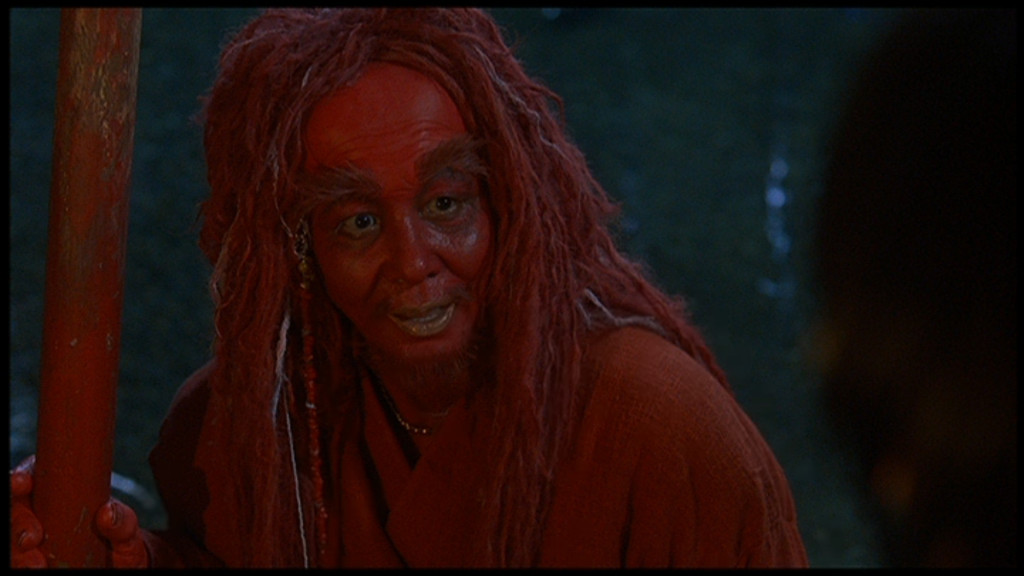
2) This kid’s shirt says something about midget racing, I shit you not. What in the hell is going on in Japan!??!
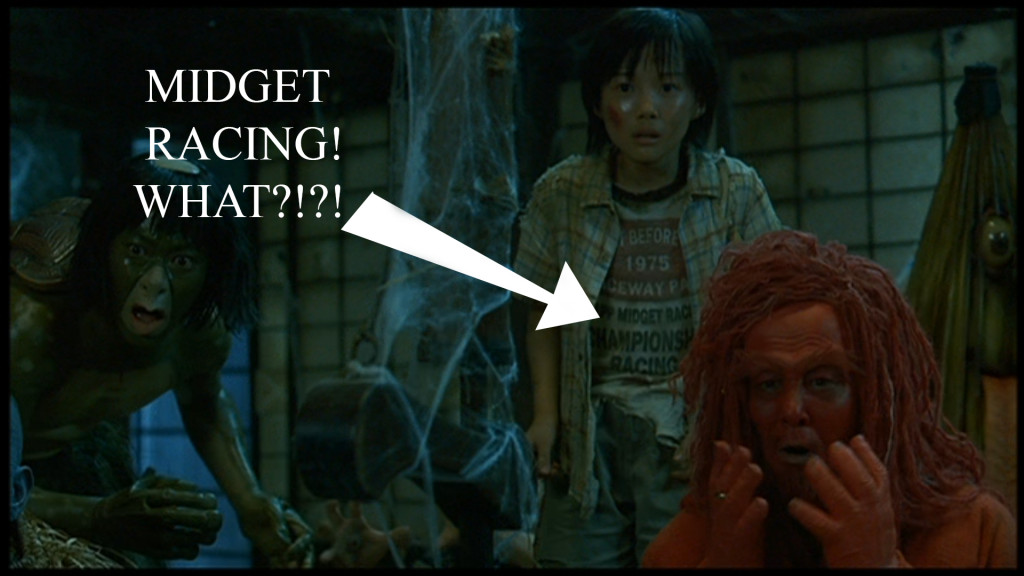
C-


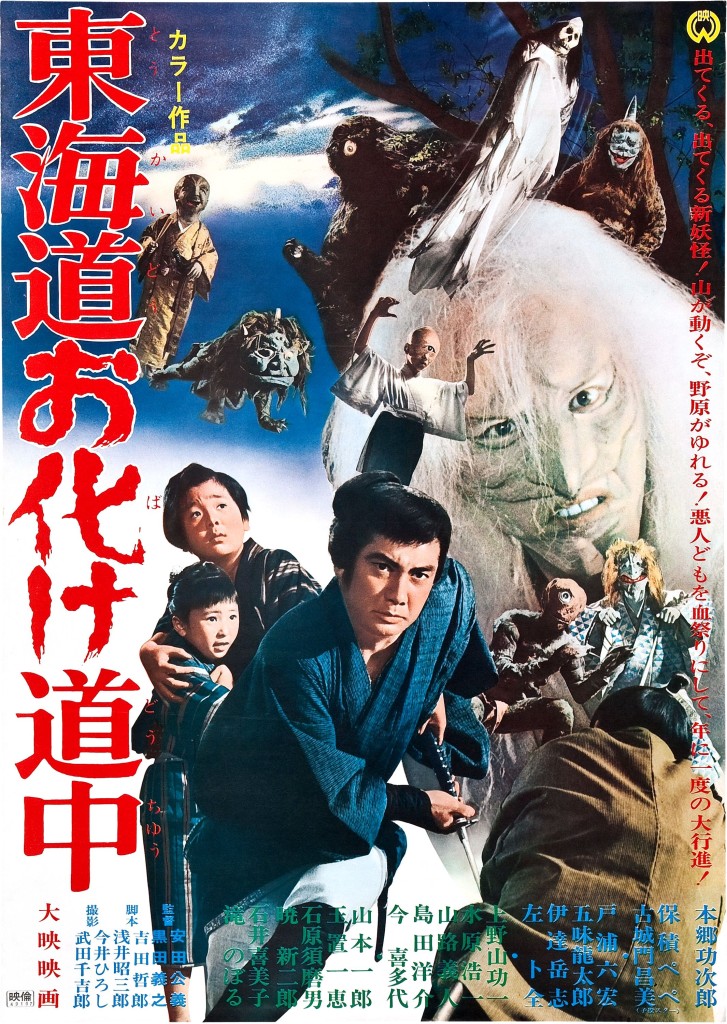
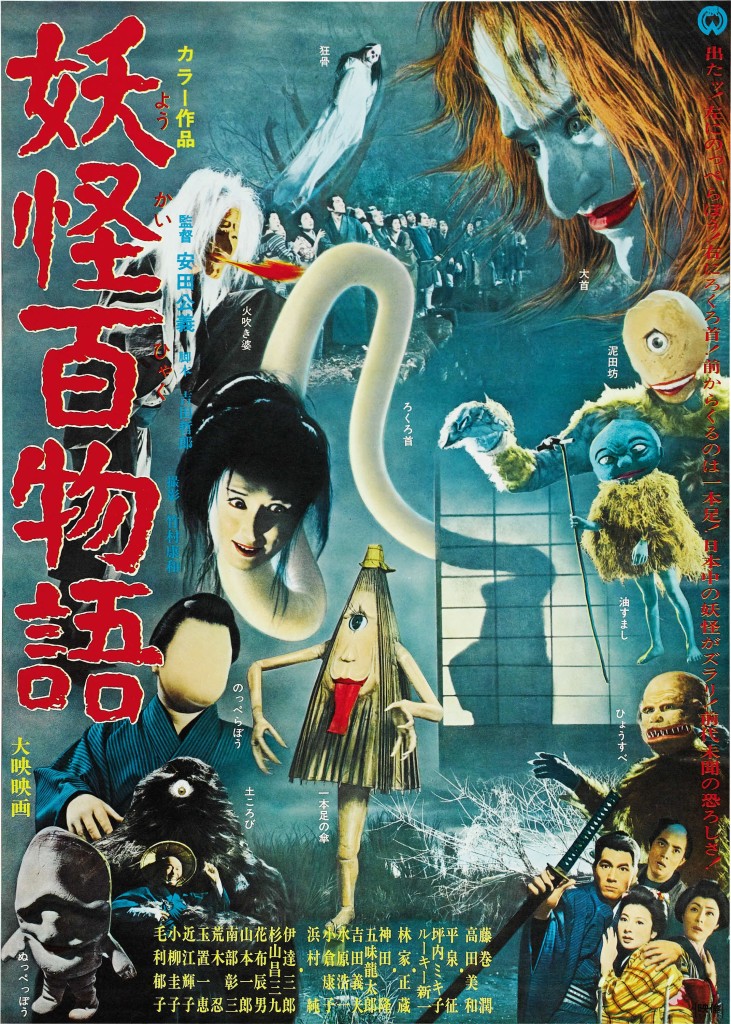
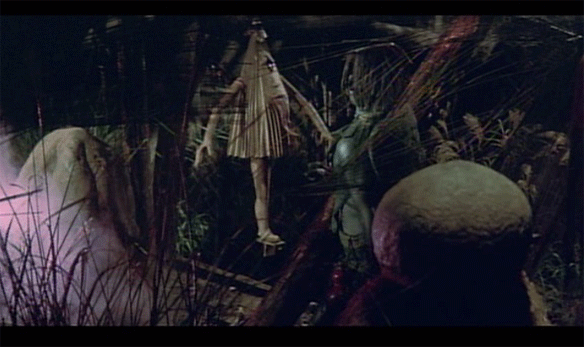
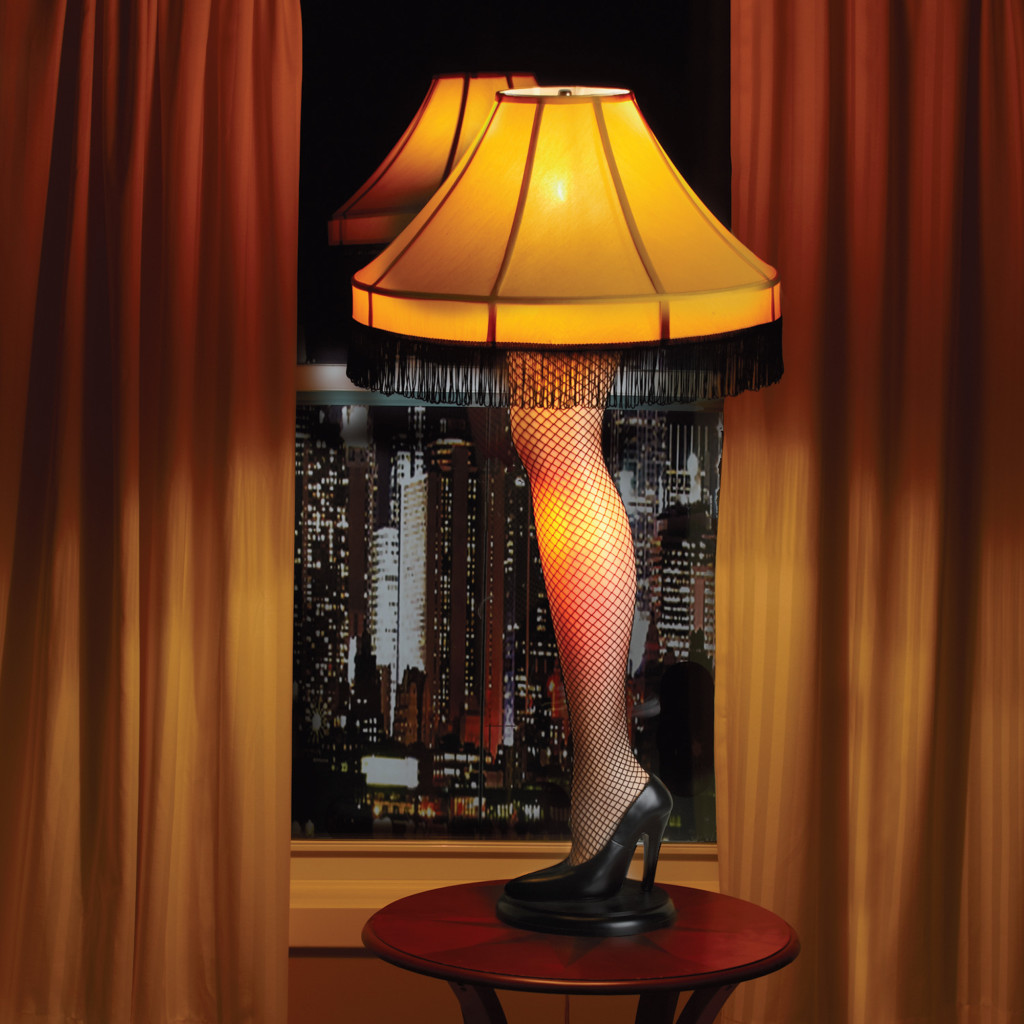

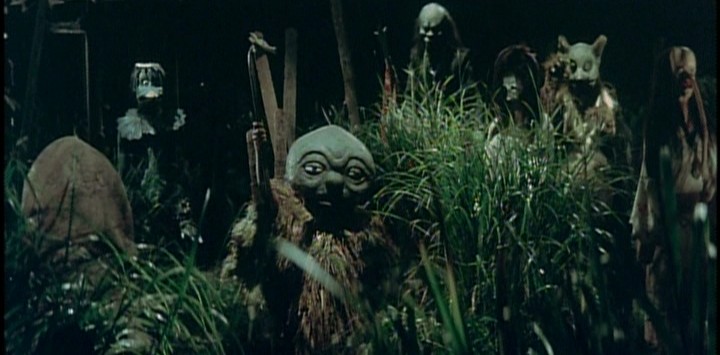
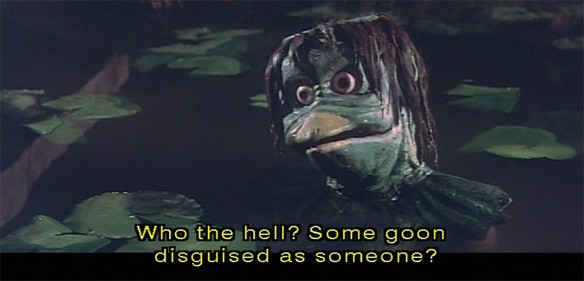 Also, sometimes the Yokai use profanity, and we all know that’s awesome.
Also, sometimes the Yokai use profanity, and we all know that’s awesome.